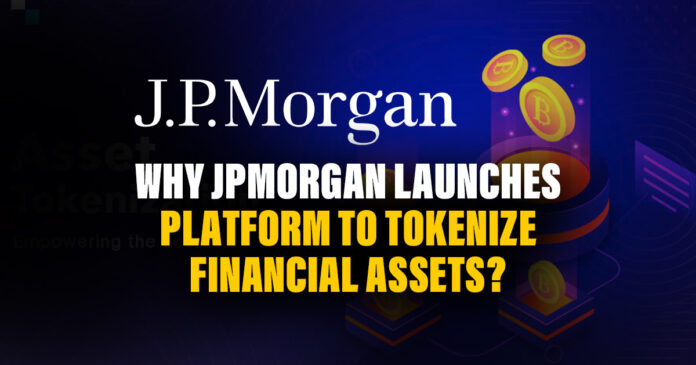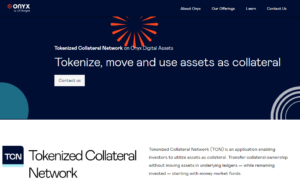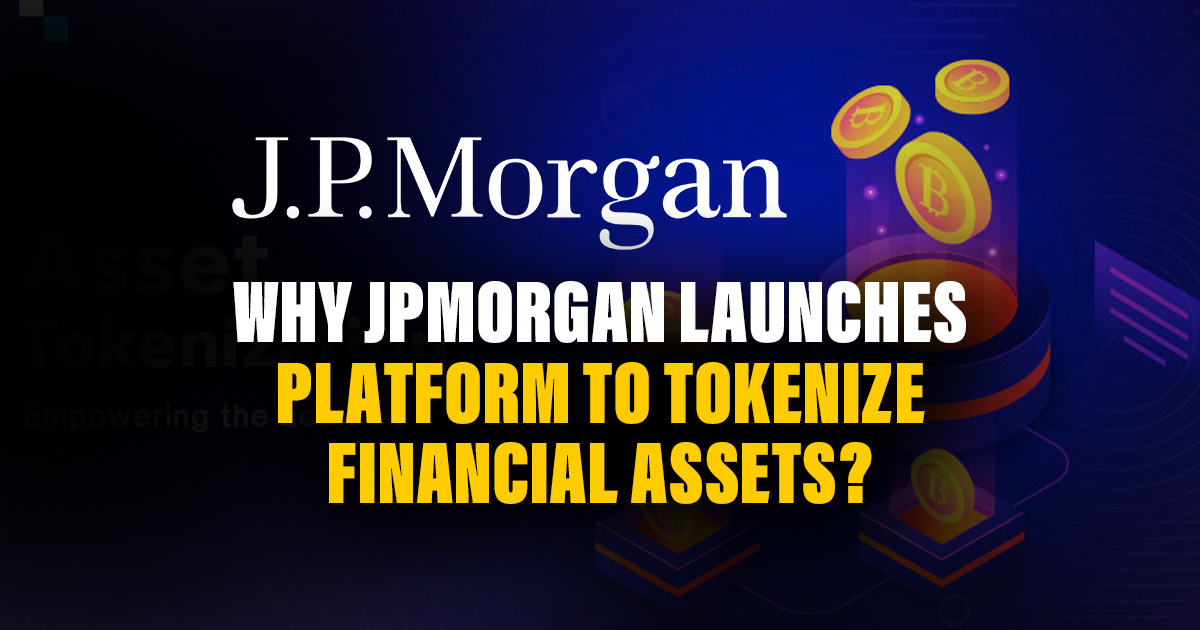
JPMorgan is one of the American giants in banking. Not long ago, they had a skeptical view of the decentralized space. But they appear to be slowly changing this view. They have now launched their new Tokenized Collateral Network (TCN).
Now let’s take a look at JPMorgan’s first steps into the world of digital asset platforms. It’s by no means decentralized, but it’s a start.
JPMorgan launches tokenization platform – settles first trade with BlackRock.
“Bitcoin itself is an overhyped scam.”
~ Jamie Dimon CEO, JP Morgan pic.twitter.com/YmAmK0np0r— Jason A. Williams (@GoingParabolic) October 11, 2023
What is Tokenized Collateral Network (TCN)?
Tokenized Collateral Network (TCN) is a platform that uses blockchain technology. JPMorgan developed this in-house. The date of the first internal tests is already set for May 2022. According to other sources, the launch could be as early as 2021. However, the X account does not have a word about this platform.
October 11th, bloomberg The first agreement was reported. This was the case for BlackRock, another American financial giant. They are also an important part of our customers. BlackRock tokenized “shares of one of its money market funds.” Accordingly, BlackRock transferred its tokenized assets to Barclays Bank. Here they used these tokenized assets as collateral for transactions. Both banks traded over-the-counter (OCT) derivatives. OCT transactions do not take place on public financial exchanges. In contrast, this is a direct transaction between two parties. There are no intermediaries like exchanges for example.
Tokenization is an emerging niche in the cryptocurrency space. The growth and impact of this market will be enormous. According to this report, by 2023 it will be worth $16 trillion. So that’s one of the reasons why JPMorgan wants to enter this market. However, as already mentioned, the TCN platform is a centralized platform. Big banking institutions like JPMorgan don’t like decentralization. There’s a simple reason for this. In a decentralized setting, it’s easy to lose control. Banks would rather maintain control.
This is very interesting. JPM used the Onyx blockchain to conduct the first live blockchain-based collateral transaction with another institution, tokenizing shares of a BlackRock money market fund and transferring them to Barclays via a tokenized collateral network. but… 🧵https://t.co/uWlZkcOMv9
— Noelle Acheson (@NoelleInMadrid) October 11, 2023
Why does JPMorgan want to tokenize its assets?
Tokenizing assets makes transactions easier and faster to execute. Capital can be unlocked and tokenized to be used as collateral. This is also possible with ongoing sales. As you can see, it’s very efficient.
JPMorgan’s TCN can create, transfer, and settle these tokenized assets. Moving existing assets can be time-consuming. Once you digitize your assets, they can be moved immediately. This also makes outdated unsecured and expensive lines of credit obsolete. On the other hand, secure repo transactions can use tokenized collateral. This is a short-term contract. You agree to sell securities and buy them back. However, it does this at a slightly higher price.
So, TCN is JPMorgan’s distributed ledger system. Nonetheless, external clients can still use it. However, it requires its own node. This node allows you to settle digital ledger transactions with JPMorgan. Blockchain technology reduces the risk of errors and fraud. Additionally, institutions have a wider range of collateral to choose from. Diversification of collateral asset types provides greater flexibility for institutions.
As you can see, TCN is a financial product targeting institutions. But JPMorgan doesn’t forget its retail customers and small businesses. They are also developing a CBDC-style digital currency. It is believed to be a mix of stablecoins and CBDC. This also utilizes blockchain technology. However, it is not as decentralized as TCN.


conclusion
We see big US banks like JPMorgan starting to use blockchain technology. They have entered the world of tokenized assets (RWA). All of this resides in its own centralized version of distributed ledger technology (DLT).
This helps you maintain control. The tokenized asset space should reach $16 trillion by 2023. JPMorgan does not want to miss this opportunity. They like the technology that cryptocurrencies use, but they don’t seem to like cryptocurrencies themselves. At least not yet.

disclaimer
Information discussed on Altcoin Buzz is not financial advice. It is for educational, entertainment and informational purposes only. Any information or strategies are thoughts and opinions relative to the risk tolerance of the author/reviewer, whose risk tolerance may be different than yours.
We are not responsible for any losses that you may incur as a result of investments made directly or indirectly in connection with the information provided. Bitcoin and other cryptocurrencies are high-risk investments, so please exercise caution.
Copyright Altcoin Buzz Pte Ltd.

